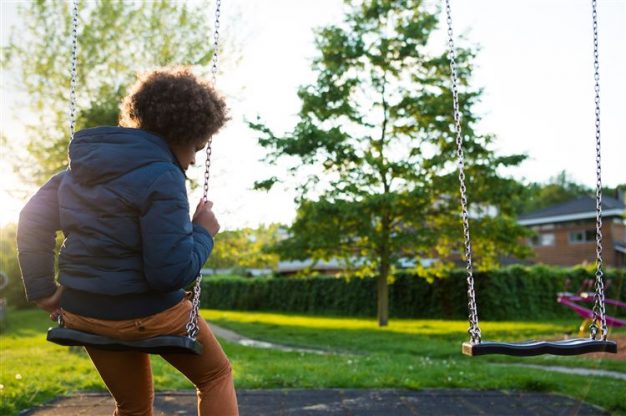
Maintaining the parent-child relationship during imprisonment is critical
Children suffer and experience increased risk for developing behaviour problems when parents are in prison. Youth professionals suggest that allowing children to have and maintain contact with an imprisoned parent in a supportive and child-friendly environment could improve their chances of a healthy, productive adult life.
According to EU report, there are more than 800,000 children, who have a parent in prison.
Valnurable children
Research findings show that arrest and imprisonment can have dramatic consequences for families. Many of the affected children experience increased risk for developing behaviour problems, academic failure, and substance abuse.
“The emotional trauma that may occur and the practical difficulties of a disrupted family life can be compounded by the social stigma that children may face as a result of having a parent in prison or jail. The lives of these children are filled with a unique kind of instability and uncertainty and they must learn to understand living and loving through bars,” said Maja Gabelica Šupljika, deputy Ombudsman for Children in Croatia.
“The children are at risk of being pulled into a vicious cycle of future criminality and deviant social behaviour.”
The right to contact
Therefore, strengthening children’s resilience in order to improve coping capacity is seen as a key path to empowering these children and their families.
In a study by Landreth and Lobaugh (1998), an increase in children’s self-esteem was shown following a 10-week intervention in which four the children could physically interact with their incarcerated fathers in a child-friendly environment.
“Children need help in understanding that their parents’ punishment for their criminal behaviour does in no way extend to them and that they are not being punished as well. The role of parents in promoting children’s well-being should not be understated, even when they are imprisoned.Therefore for a growing number of children, parent–child contact during the incarceration period is a key issue,” added Šupljika.
Literature suggests that one way of maintaining communication is through visitation. It is perhaps the most important mechanism for maintaining a positive parent/child relationship. However, family members as well as professionals fear that visits may be stressful when visiting environments are not child friendly.
“Lack of any contact with incarcerated parents may be associated with children’s negative feelings about their incarcerated parents. Enabling children to visit their imprisoned parents strengthens communication between them and improves the parenting skills of the incarcerated adult,” said Šupljika.
Barriers to visits
Literature suggests that the quality of visits is more likely to be affected by the institutional settings, which may be highly stressful for children.
“The quality of visits is more likely to be affected by the institutional settings, which may be highly stressful for children. Consequently, efforts should be made to strengthen the competence of prison staff enabling children and the entire families to spend some quality time together and develop their relationships in a child-friendly environment, ” concluded Šupljika.
Another obstacle to maitaining a regular parent-child contact is that children are often challenged with the inability to exercise their right to visit their parents, either due to the prison being too far from home or the other parent’s or caregiver’s unwillingness for the child to visit the parent.
Education and raising awareness helps the issue
Many European nongovernmental organizations, including ombudsmen, are active in boosting awareness and achieving new ways of looking at issues concerning prisoners’ children.
EUROCHIPS (The European Committee for Children of Imprisoned Parents), lately rebranded to Children of Prisoners Europe (COPE) act as a voice for prisoners’ children to raise public awareness by educating judges, schools, childcare professionals, prison staff, etc. They also provide opportunities for exchanging ideas and good practice for children with imprisoned parents. The study covered 4 countries: Sweden, Romania, Germany and the UK.
COPE is implementing a campaign, “Not my crime, still my sentence”. The purpose of this campaign was to inform, raise awareness about and draw attention to the rights and needs of children separated from a parent in prison.
The EU-research study co-founded by the EU Commission named COPING is a child-centred project, which investigated the resilience and vulnerability leading to mental health problems of children of imprisoned parents. The study covered 4 countries: Sweden, Romania, Germany and the UK. COPING research findings are aimed towards implementing European and international public policies with the view of enhancing the welfare of children.
Ombudsman for Children in Croatia
The institution of the Ombudsman for Children in Croatia was established in 2003 as the first specialized institution of its kind in the Republic of Croatia, with the aim of monitoring, protecting and promoting the rights and interests of children.
The institution was established by the Law on the Ombudsman for Children, which was enacted by the Croatian National Parliament that has appointed the Ombudsman for Children.
The headquarters are in Zagreb and there are three other regional offices in different parts of the country. The institution is an active member of ENOC – European Network of Ombudsmen for Children, of Children’s Rights Ombudsperson’s Network in South and Eastern Europe (CRONSEE) and of Children of Prisoners Europe. Office staff consists of 19 persons in permanent positions with background in law, psychology, social and human sciences, media and information, financial matters and office management.
The mission of the institution is: to protect, monitor and promote children’s rights and interests in an effort to make them a more significant political and social priority.




